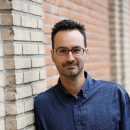Toulouse Summer School in Quantitative Social Sciences 2026
May 26- June 19
The Toulouse Summer School in Quantitative Social Sciences at Toulouse School of Economics (TSE) and the Institute for Advanced Study in Toulouse (IAST) offers an interdisciplinary program in the social and behavorial sciences. The summer school is open to PhD students in economics and other disciplines.
Applicants should provide a CV, a copy of their most advanced degree, proof of student status, and a short cover letter including motivation for applying on the online application form.
See the brochure for more details on application procedures.
Contact: summerschool@tse-fr.eu
Organizer: Jorge Peña (jorge.pena@iast.fr)
The summer school will be in-presence only and located in the TSE building at 1 Esplanade de l’Université, 31000, Toulouse, France.
See below the Edition 2025
Contact
See also
The Toulouse Summer School in Quantitative Social Sciences offers a variety of courses taught by recognized experts in their fields. Further details can be found in the summer school brochure.
Part 1 (May 26 – June 5)
The evolution of human sociality
Instructors: Olympia Campbell, Maxime Derex, Léo Fitouchi, Catherine Molho, Jorge Peña
Week 1:
Day 1: Vacation
Day 2: Jorge Peña
- Mathematical models of social evolution
- Exercices
Day 3: Jorge Peña
- Mathematical models of social evolution
- Exercices
Day 4: Maxime Derex and Olympia Campbell
- Cultural evolution: On the shoulders of dummies?
- The evolution of marriage systems
- Student presentations
Day 5: Catherine Molho
- The psychology of cooperation and social norm enforcement
- Student presentations
Week 2:
Day 1 and Day 2
- Toulouse Economics and Biology Workshop
Day 3: Jorge Peña
- Mathematical models of social evolution
- Exercices
Day 4: Jorge Peña
- Mathematical models of social evolution
- Exercices
Day 5: Léo Fitouchi
- The evolution of social cognition
- Student presentations
Part 2 (June 08–June 19)
Understanding borders: A fresh research lens on immigration, religion, and autocratization
Instructors: Charlotte Cavaillé, Ahmed Ezzeldin Mohamed, Paul Seabright
Week 1:
Day 1: Charlotte Cavaillé
- Immigration politics
- Student presentations and applied activities
Day 2: Ahmed Ezzeldin Mohamed
- Autocratic rule
- Student presentations and applied activities
Day 3: Paul Seabright
- Religion and Politics
- Student presentations and applied activities
Day 4: Charlotte Cavaillé
- Immigration politics
- Student presentations and applied activities
Day 5: Ahmed Ezzeldin Mohamed
- Autocratic rule
- Student presentations and applied activities
Week 2:
Day 1: Paul Seabright
- Religion and Politics
- Student presentations and applied activities
Day 2: Charlotte Cavaillé, Ahmed E. Mohamed, Paul Seabright
- Mixed group presentations and roundtables
Day 3: Charlotte Cavaillé
- Immigration politics
- Student presentations and applied activities
Day 4: Ahmed Ezzeldin Mohamed
- Autocratic rule
- Student presentations and applied activities
Day 5: Paul Seabright
- Religion and Politics
- Student presentations and applied activities
Contact
See also
950 euros for the Part 1 (May 26 – June 5) The evolution of human sociality
950 euros for the Part 2 (June 08–June 19) Understanding borders: A fresh research lens on immigration, religion, and autocratization
Accommodation: All students will be provided with on-site accommodation at the Toulouse Social Hub.
Funding: A limited number of fee-waiver are available. If you would like to apply for a fee-waiver (covering totally the registration fees), please specify this on the application form and upload a letter from your doctoral school or main advisor in support of your application to a fee-waiver.
Contact
See also
Application deadline January 15, 2026
The following documents are required to apply:
- CV
- Copy of most advanced degree
- Proof of of student status
- a short cover letter including motivation for applying
Students must apply twice if they want to apply for the Part 1 and Part 2.

